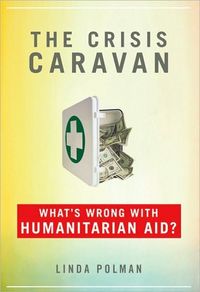

Purchase
What's Wrong with Humanitarian Aid?
Macmillan
September 2010
On Sale: September 14, 2010
240 pages
ISBN: 0805092900
EAN: 9780805092905
Hardcover
Add to Wish List
Non-Fiction
A no-holds-barred, controversial exposvé of the financial
profiteering and ambiguous ethics that pervade the world of
humanitarian aid A vast industry has grown up around humanitarian aid: a
cavalcade of organizations—some 37,000—compete for a share
of the $160 billion annual prize, with "fact-inflation"
sometimes ramping up disaster coverage to draw in more
funds. Insurgents and warring governments, meanwhile, have
made aid a permanent feature of military strategy: refugee
camps serve as base camps for genocidaires, and aid supplies
are diverted to feed the troops. Even as humanitarian groups
continue to assert the holy principle of impartiality, they
have increasingly become participants in aid's abuses. In a narrative that is impassioned, gripping, and even
darkly absurd, journalist Linda Polman takes us to war zones
around the globe—from the NGO-dense operations in
"Afghaniscam" to the floating clinics of Texas Mercy Ships
proselytizing off the shores of West Africa—to show the
often compromised results of aid workers' best intentions.
It is time, Polman argues, to impose ethical boundaries, to
question whether doing something is always better than doing
nothing, and to hold humanitarians responsible for the
consequences of their deeds.
Comments
No comments posted.
Registered users may leave comments.
Log in or register now!
| 


 © 2003-2025 off-the-edge.net
all rights reserved Privacy Policy
© 2003-2025 off-the-edge.net
all rights reserved Privacy Policy